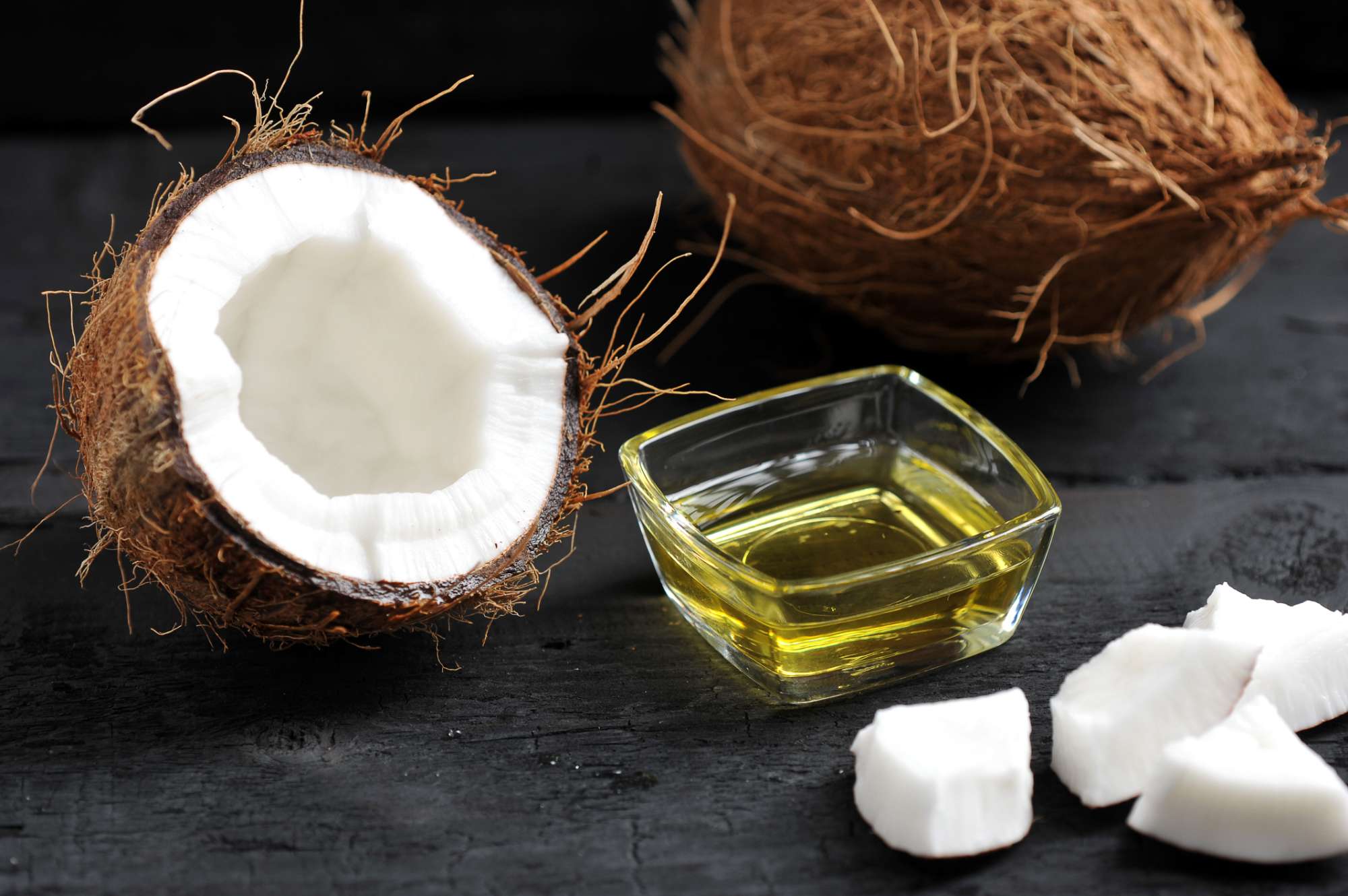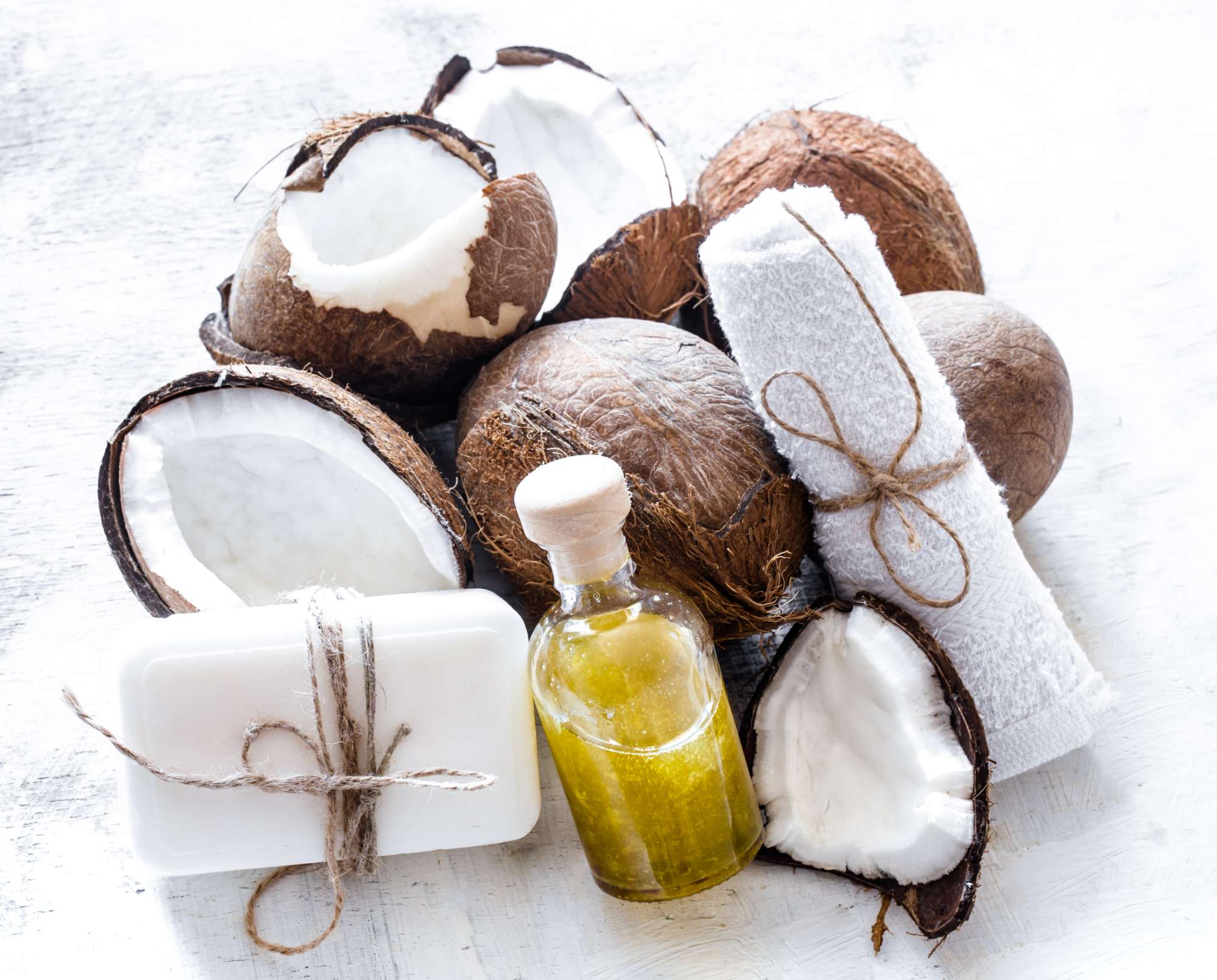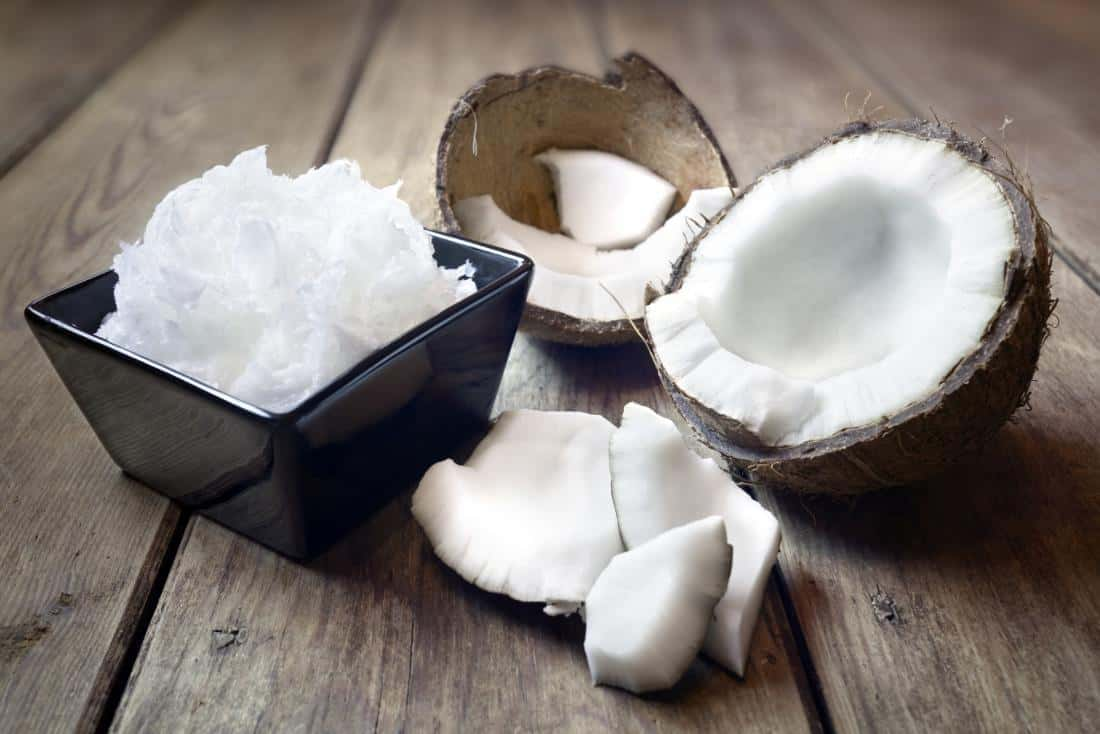Coconut oil is high in saturated fats and doesn't contain cholesterol
Coconut oil is high in saturated fats and doesn't contain cholesterol
Coconut oil has been proven that it contains many ingredients that help to lose belly fat, curb appetite, boost the immune system, prevent heart disease and prevent dementia, Alzheimer's disease. Coconut oil is also very popular in some trending diets like the ketogenic and Paleo diets.
Today, coconut oil has become a popular fat choice because of its rich flavor with a mild aroma. Farther than that, coconut oil has been increasingly endorsed for its health benefits, including anti-bacterial and antioxidant properties, improved skin and oral health, as well as its ability to lose weight. Manufacturers also exploit coconut in the processing of food and body care products.
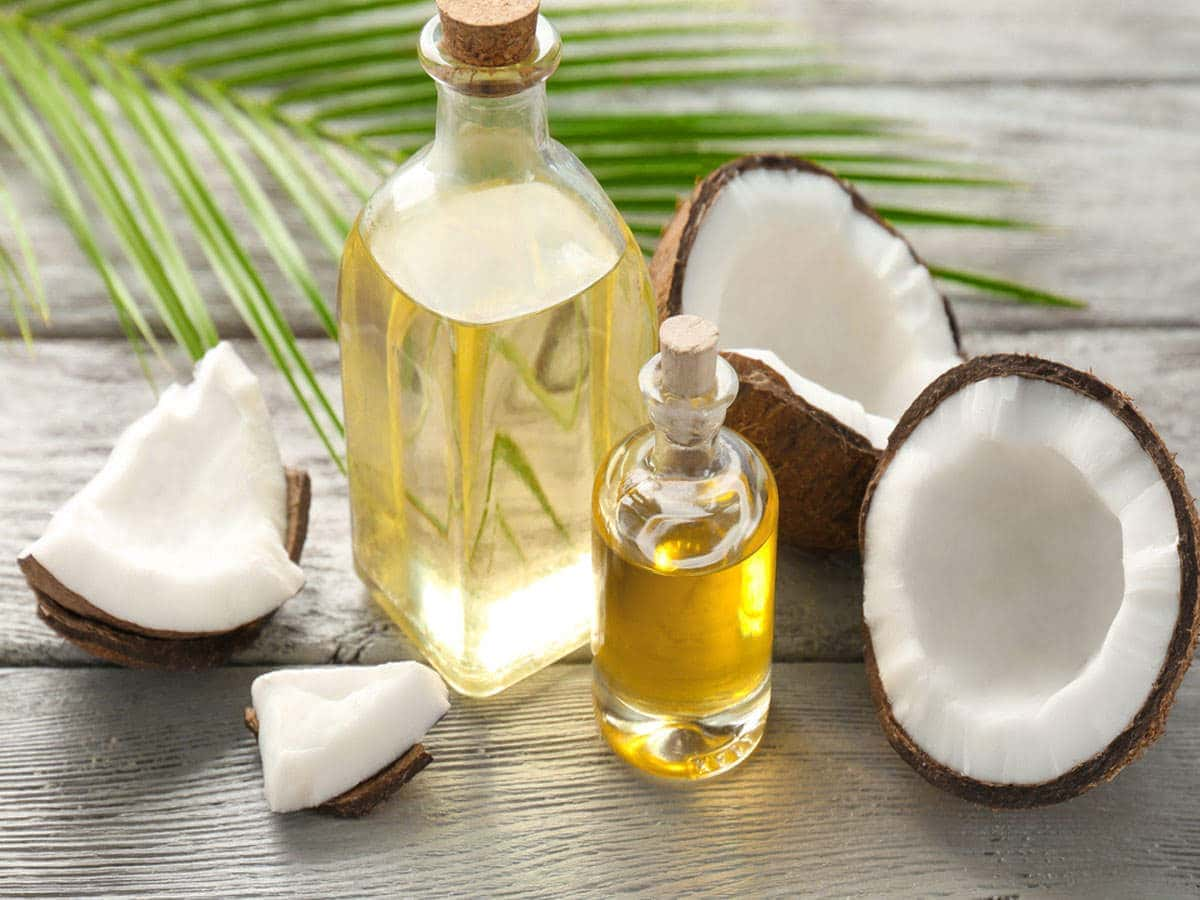
COCONUT OIL MAY ENCOURAGE FAT BURNING
Researchers have found that consuming a type of saturated fat in coconut oil, called MCTs, may increase the number of calories you burn. However, it’s still unclear if coconut oil itself has this effect.
Saturated fats are divided into three subgroups, each of which has different effects in your body. These subgroups are long-chain, medium-chain, short-chain. Scientists are studying medium-chain triglycerides (MCTs), including those found in coconut oil, for their potential health benefits.
For instance, some evidence shows that consuming MCTs may increase the number of calories your body burns. In doing so, it may help promote weight loss. Since the fats in coconut oil are 65% MCT, it may have fat-burning properties that are similar to pure MCT oil.
In fact, studies on MCT’s weight loss potential even call for caution when interpreting results because larger and higher-quality studies are still needed. While MCTs may increase how many calories you burn, keep in mind that coconut oil is very high in calories and can easily lead to weight gain if you consume it in large amounts.
COCONUT OIL MAY WORK AS A QUICK SOURCE OF ENERGY
Coconut oil is high in MCTs, which your body metabolizes differently than LCTs (bad cholesterol). MCTs provide a rapid energy source that your body can absorb and use faster than other types of saturated fat.
When you eat long-chain triglycerides (LCTs), the fat molecules are transported through blood to tissues that need them, such as muscle or fat tissue.
On the other hand, MCTs go straight to liver and become a rapid energy supply in much the same way as carbs - body’s preferred source of energy.
In fact, MCTs have been long used in sports nutrition products for athletes who need a source of energy their body can absorb and use fast.
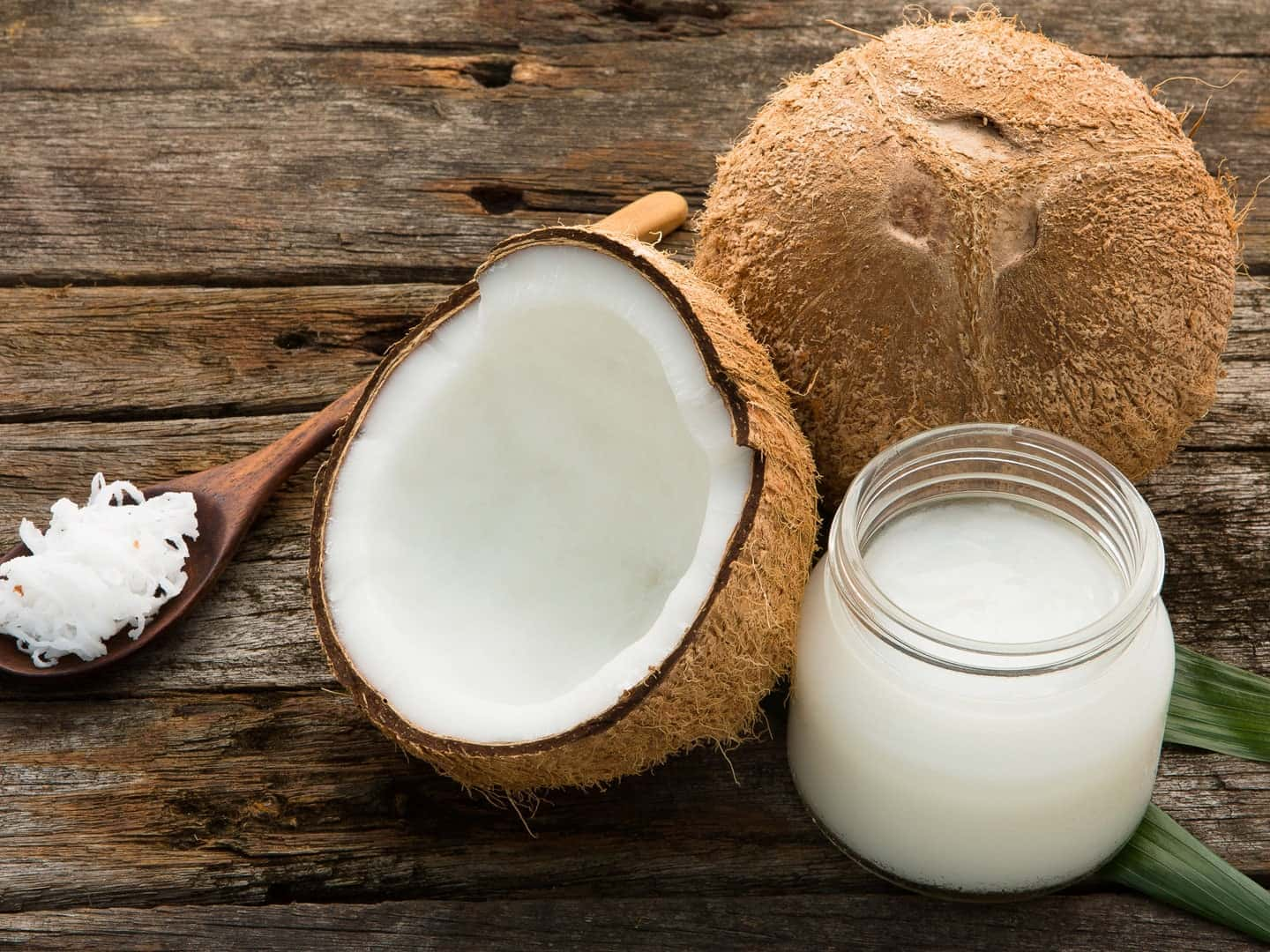
COCONUT OIL HAVE ANTIMICROBIAL EFFECTS
Lauric acid in coconut oil may have antimicrobial properties against a variety of harmful microorganisms.
Lauric acid is a fatty acid that makes up about 50% of the MCTs in coconut oil. Research suggests it have antimicrobial effects against disease-causing microorganisms, such as staphylococcus aureus, streptococcus mutans, streptococcus pyogenes, escherichia coli, helicobacter pylori. Studies show that lauric acid may act as a bacteriostatic agent. This is a substance that prevents bacteria from multiplying without killing the bacteria.
It may also act as a bacteriocidal agent, which destroys some bacteria. In addition, it may also inhibit the growth of microorganisms that are harmful to plants.
COCONUT HELP REDUCE HUNGER
MCTs may help reduce food intake by decreasing hunger. This may be related to how the body breaks them down. A proportion of MCTs you eat are broken down in a process that produces. Ketones reduce appetite by either acting directly on the brain’s chemical messengers or altering the levels of hunger-inducing hormones, such as ghrelin. You may be familiar with ketones in the context of ketogenic diets, which are quite popular these days. People who are on keto diets don’t eat many carbs, but they do often eat lots of fat. For this reason, their bodies tend to use ketones for fuel.
However, though coconut oil is one of the richest natural sources of MCTs, there’s no evidence that coconut oil itself reduces appetite more than other oils. In fact, one study reports that coconut oil is less filling than MCT oil.
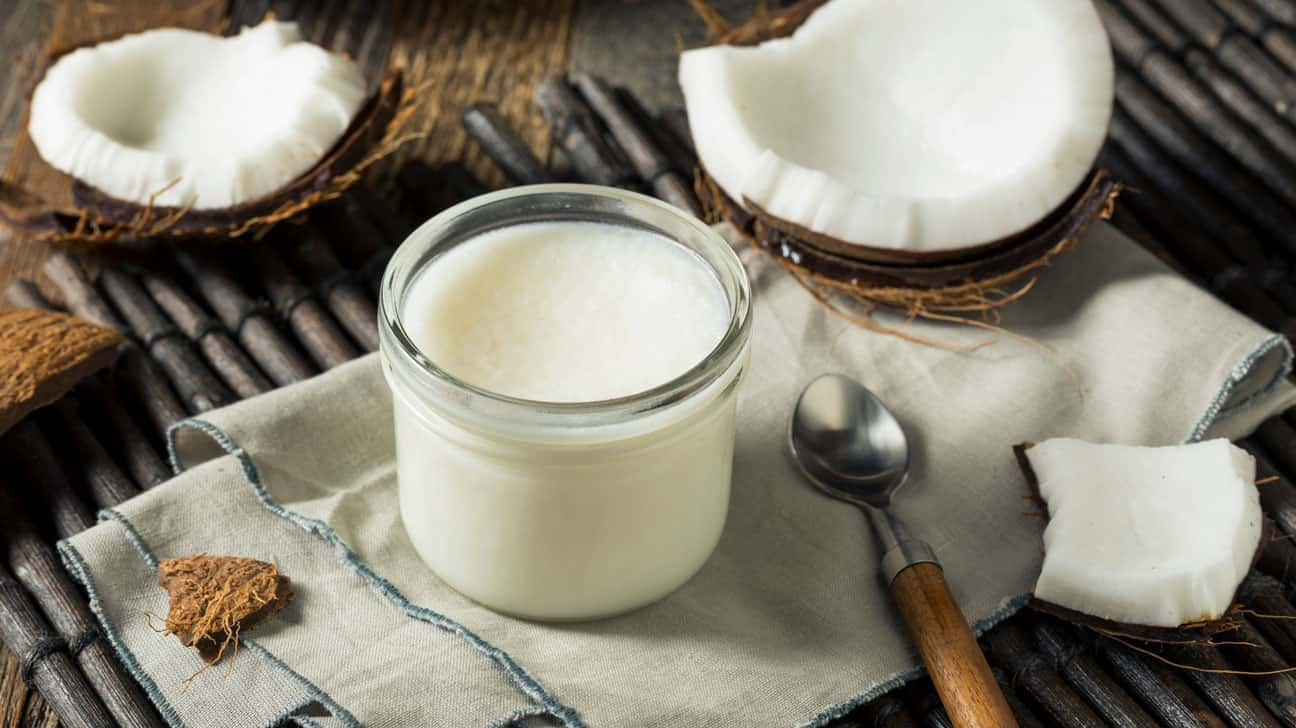
COCONUT OIL HELP REDUCE SEIZURES
MCTs in coconut oil can increase blood ketone concentrations, which may help reduce seizure frequency. People have long used keto diets, which are very low in carbs and high in fats, to treat various disorders, including drug-resistant epilepsy. They have been shown to help reduce how often seizures happen.
Researchers believe that the lack of available glucose to fuel brain cells is a possible explanation for the reduction in seizure frequency in people with epilepsy on ketogenic diets. However, overall, there’s a lack of evidence for the use of keto diets in adults and infants with epilepsy, so more research is needed.
Reducing your carb intake reduces the glucose in your blood, and increasing your fat intake leads to significantly increased concentrations of ketones. Your brain can use ketones as an energy source instead of glucose. Recently, people have found they can effectively treat epilepsy by following modified keto diets that include MCTs and a more generous carb allowance to induce ketosis. Research shows that the MCTs in coconut oil get transported to your liver and turned into ketones.
COCONUT OIL BOOST SKIN HEALTH
Coconut oil has many uses that have little to do with eating. Many people use it for cosmetic purposes to improve the health and appearance of their skin.
Studies show that coconut oil can boost the moisture content of dry skin. It may also improve the function of the skin, helping prevent excessive water loss and protecting you from external factors, such as infectious agents, chemicals, and allergens.
A recent study determined that applying 6–8 drops of virgin coconut oil on your hands and leaving it overnight may be an effective way to prevent dry skin caused by frequent use of alcohol-based hand sanitizers..
It may also reduce the severity of mild to moderate symptoms of atopic dermatitis, a chronic skin disease characterized by skin inflammation and defects in skin barrier function.
COCONUT OIL PROTECT YOUR HAIR
Coconut oil may help strengthen your hair by increasing flexibility and reducing the breakage of hair strands.
For instance, one study determined that, since coconut oil deeply penetrates hair strands, it makes them more flexible and increases their strength to prevent them from breaking under tension. Similarly, another study found that coconut oil nourishes hair strands and reduces breakage, which further strengthens the hair.

COCONUT OIL IMPROVE ORAL HEALTH
Coconut oil may be a cost-effective way to improve oral health due to its lauric acid content. It significantly reduce the count of harmful bacteria in the mouth compared with a regular mouthwash.
Additionally, lauric acid in coconut oil reacts with saliva to form a soap-like substance that prevents cavities and helps reduce dental plaque buildup and gum inflammation.
However, the review studies note that there’s limited evidence on this topic and that oil pulling doesn’t replace dental therapy. More research is needed on the effects of oil pulling on dental health.
COCONUT OIL HELP REDUCE SYMPTOMS OF ALZHEIMER’S DISEASE
Alzheimer’s disease is the most common cause of dementia. Because of coconut oil is rich in MCTs, which significantly increase blood levels of ketones, it may potentially help with symptoms of Alzheimer’s disease. However, further studies are needed.
This condition reduces your brain’s ability to use glucose for energy. However, researchers believe that ketones can offset early signs of mild to moderate Alzheimer’s disease by providing an alternative energy source for brain cells. For this reason, individual foods like coconut oil have been investigated for their potential role in managing Alzheimer’s disease.
COCONUT OIL IS A GOOD ANTIOXIDANT SOURCE
Coconut oil is a good source of antioxidants, which provide anti-inflammatory, anti-diabetic, and brain-protective effects.
Antioxidants in coconut oil confer it with potential anti-inflammatory and brain-protective effects. One study also suggests the possible role of coconut oil, particularly the MCT lauric acid, in reducing secondary diabetic complications.
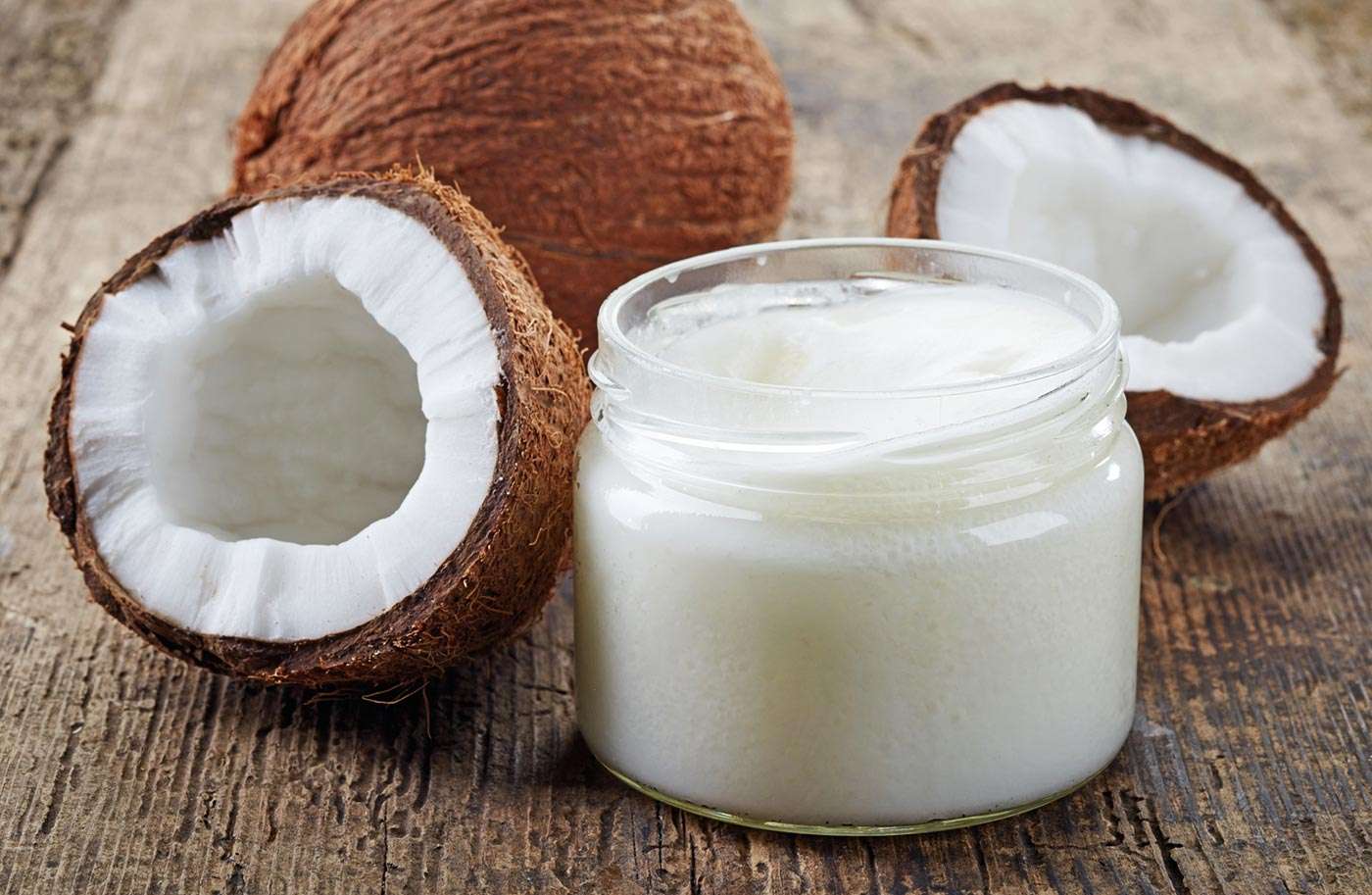
INCREASE GOOD CHOLESTEROL
There are two types of cholesterol: high-density lipoprotein (HDL) is good cholesterol, and low-density lipoprotein (LDL) is bad cholesterol. HDL helps lower LDL levels, and high HDL levels can help promote heart health.
Some Trusted Source researchers have argued that medium-chain triglycerides (MCTs), an ingredient in coconut oil, may help raise good cholesterol levels. Participants took 1 tablespoon of coconut oil twice daily for 8 weeks. However, there was other some results from the Trusted Source was also different. A small 2004 study found the opposite. In the study, dietary MCTs increased bad cholesterol in 17 healthy young men. The scientists did not study any other indicators of heart health.
However, the Source's findings published in 2018 suggest that the effects of virgin coconut oil on cholesterol may be similar to the effects of olive oil. So far, the results are inconclusive and more research is needed.
Compiled and penned by Crocus Media
Products

Desiccated Coconut
Desiccated coconut is mainly used as an ingredient in confectionery and bakery industry. It’s used in making cookies, cakes, pastries, desserts, puddings, or any other coconut based recipes.


